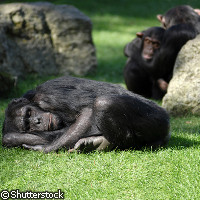Animals that sleep longer have stronger immune systems, study finds
Evolutionary biologists in the UK, US and Germany have discovered that animals that spend more time sleeping suffer less from parasitic infections and have a greater concentration of circulating immune cells. The findings, which are published in the journal BMC Evolutionary Biology, may help to clarify the role of sleep in the human immune response. 'Sleep is a biological enigma,' say the authors. According to lead investigator Dr Brian Preston of the Max Planck Institute for Evolutionary Anthropology in Germany, although it takes up much of our time and has been studied widely, nobody has yet explained why different species have evolved such marked variation in their sleep requirements. Sleep is a vulnerable and seemingly unproductive state in which animals have little awareness of their surroundings. Because sleeping would seem to increase the risk of being caught by a predator and reduces opportunities to find food or reproduce, it is interesting that we spend so much time doing it. 'To outweigh these costs,' the study reads, 'the benefits of sleep must be substantial.' However, investigations of the specific relationship between the evolution of sleep patterns and factors such as brain repair or learning have produced mixed results. In this latest research, the team tested the theory that sleep improves immune function, which demands an incredible amount of energy, by comparing the reported sleeping times of different species (different mammal species sleep between 3 and 20 hours a day) with information on immune function and parasitism. The scientists used information from two databases: the International Species Information System, which provided information about blood composition in healthy zoo animals, and the Global Mammal Parasite Database, which details the prevalence of viruses, bacteria and fungi that infect wild animals. They compared these data to information on both rapid-eye-movement (REM) and non-rapid-eye-movement (NREM) sleep patterns in the same species, gleaned from an exhaustive search of the literature. They found that as species evolve longer sleep times, their white blood cell count increases exponentially: a 14-hour increase in sleeping times corresponded to a 615% increase in white blood cells. This was true for four of the five types of white blood cell they studied. Importantly, the biologists determined that with longer sleep times, the amount of other blood components does not increase. This suggests a general increase in the animal's immunological defences, but not in other types of cell production. They also found that the number of circulating white blood cells increases in parallel with longer durations of both REM and NREM sleep, which contradicts some earlier findings. Importantly, the researchers observed that in the 12 species in which parasitism could be studied, the number of parasitic infections decreased with the evolution of longer sleep times. 'Our results are consistent with parasite resistance having played an important role in the evolution of sleep, and suggest therefore that sleep is of greater immunological significance than is currently recognised,' the study reads. 'We suggest that sleep fuels the immune system,' the authors conclude, which contradicts the widely held notion that sleep is mostly for the brain. 'Our results suggest mammalian species that spend more time asleep are able to increase investment in their immune systems, and thus are better protected from parasitic infection.' The findings highlight the need to address the rise in sleep disorders and decline in human sleep times that have been observed in recent decades. The authors emphasise the need to determine the physiological mechanisms that underpin the influence of sleep on the immune system so that the relationship between sleep deficits and susceptibility to infection can be clearly established.
Countries
Germany, United Kingdom



